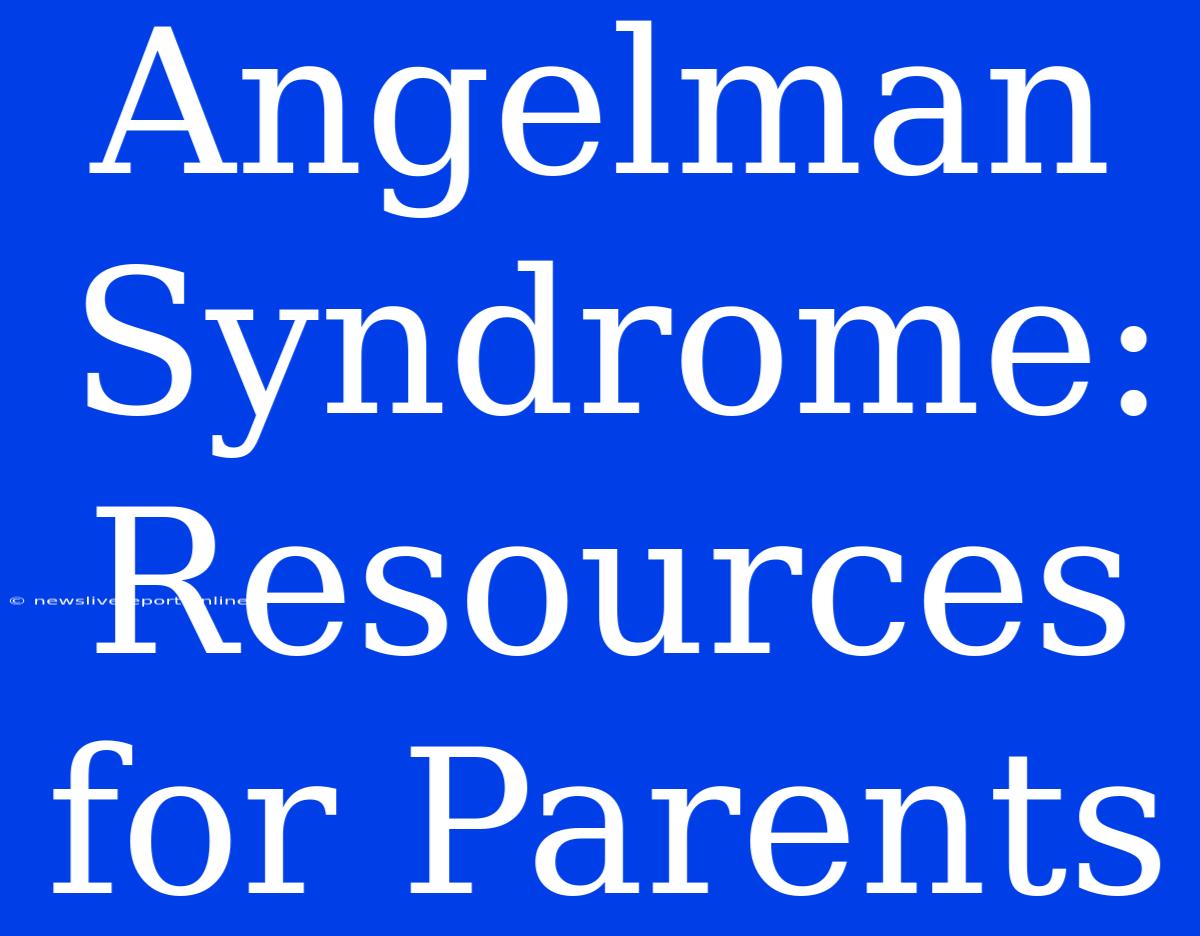Angelman Syndrome: Resources for Parents
Angelman Syndrome (AS) is a rare genetic disorder that affects the nervous system, causing developmental delays, intellectual disability, and behavioral issues. It is characterized by a distinctive "happy" demeanor, frequent laughter, and a lack of speech. While there is no cure for AS, early intervention and support can significantly improve quality of life for individuals with AS and their families.
Navigating the journey of raising a child with Angelman Syndrome can be challenging. Understanding the condition, finding the right resources, and connecting with other families can make a world of difference. This article offers a comprehensive guide for parents, providing valuable resources and information to support them in their journey.
Understanding Angelman Syndrome:
- What causes Angelman Syndrome? AS is most often caused by a deletion or mutation in a gene called UBE3A on chromosome 15. This gene is responsible for producing a protein that is crucial for brain development and function.
- What are the symptoms of Angelman Syndrome? Common symptoms include developmental delays, intellectual disability, speech impairment, seizures, and characteristic behaviors like frequent laughter, hand-flapping, and an attraction to water.
Resources for Parents:
1. Organizations dedicated to Angelman Syndrome:
- The Angelman Syndrome Foundation (ASF): This non-profit organization provides comprehensive support to families, including resources for research, advocacy, education, and family support groups. They also offer a helpline for parents to connect with experienced professionals and other families. ()
- The Angelman Syndrome UK (ASUK): Based in the UK, this organization offers valuable information and resources to families affected by AS, including support groups, fundraising initiatives, and research updates. ()
2. Information and Educational Resources:
- The National Institute of Neurological Disorders and Stroke (NINDS): This government agency provides detailed information on Angelman Syndrome, including causes, symptoms, diagnosis, and treatment options. ()
- The Genetics Home Reference: This website from the National Institutes of Health offers easy-to-understand information about various genetic conditions, including Angelman Syndrome. ()
3. Support and Community:
- Angelman Syndrome Support Groups: Joining a support group connects families with others who understand the challenges of raising a child with AS. These groups provide a safe space to share experiences, seek advice, and build a strong network of support. Look for local groups through the ASF or ASUK websites.
- Online Forums and Social Media: Online communities, like Facebook groups and forums, offer opportunities for parents to connect with others, ask questions, and share their journeys.
4. Medical Professionals:
- Neurologists: Neurologists are medical professionals who specialize in the diagnosis and treatment of nervous system disorders, including AS.
- Geneticists: Geneticists help diagnose Angelman Syndrome and provide guidance on genetic testing and counseling.
- Developmental Pediatricians: These specialists focus on the developmental needs of children and can provide comprehensive care for individuals with AS, including early intervention therapies.
5. Therapy and Early Intervention:
- Physical Therapy: Physical therapy helps individuals with AS develop motor skills, improve strength, and enhance coordination.
- Occupational Therapy: Occupational therapy addresses daily living skills, sensory processing, and fine motor skills.
- Speech Therapy: Speech therapy aims to improve communication skills, enhance language development, and teach alternative forms of communication.
- Behavioral Therapy: Behavioral therapy helps individuals with AS manage challenging behaviors, develop coping mechanisms, and learn social skills.
Conclusion:
Angelman Syndrome presents unique challenges for families, but access to the right resources and support can significantly enhance the quality of life for individuals with AS and their loved ones. Utilize the organizations, online communities, and medical professionals mentioned in this article to navigate this journey, gain knowledge, connect with other families, and create a positive and supportive environment for your child.
Remember: Every child with Angelman Syndrome is unique, and each family's journey will be different. By embracing the challenges and celebrating the strengths of individuals with AS, you can create a brighter future for your child and your family.

